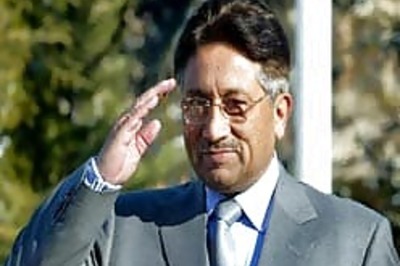
views
New Delhi: Loss to image, goodwill, reputation, public perception of an individual and respect are some of the few things a 'victim' cites in the court of law while suing the other civil and/or criminal defamation.
Former Union Minister MJ Akbar, who resigned on Wednesday evening amid allegation of sexual misconduct, will be in a Delhi court on Wednesday for defamation case he has filed against senior journalist Priya Ramani, who was the first to accuse him of sexual harassment on social media.
The case will be heard in Additional chief metropolitan magistrate Samar Vishal's courtroom.
In 2011, an unprecedented Rs 100-crore defamation suit was filed against a news channel filed by former Supreme Court judge Justice PB Sawant after his image was flashed on TV for a story not related to the judge. Reports had then suggested that his battle was not for money, but media ethics. He wanted to spend on charity if the amount was granted.
But since when this sword of danger has been hanging over journalists? Is this often used to muzzle the right to free speech or does it only define the boundaries?
India’s defamation laws have remained untouched since the colonial era. Several countries, including the UK, Sri Lanka and the US have decriminalised defamation and made it a civil wrong.
In India, defamation cases can be filed under two heads. It is either civil or criminal.
In civil defamation, a person who is defamed can move either the High Court or the subordinate courts and seek damages in the form of monetary compensation. There is no punishment in the form of jail sentence. However, this remains a less explored option.
In criminal defamation, the person against whom a defamation case is filed might be sentenced to two years’ imprisonment or fined or both.
Section 499 of the Indian Penal Code criminalises speech that is intended to cause harm to the reputation of any person.
Section 500 details the punishment for defamation, making a person liable for imprisonment up to two years (with or without a fine).
Now, what will MJ Akbar have to prove to establish a case for criminal defamation?
The first condition is to prove that the statement must be published. The matter should be published in either written or oral form so as to establish that someone knows or have heard about it.
The next condition is to prove that the statement made has lowered the reputation or goodwill of the person and this is often the basic ground that is needed to be proven for a case for defamation.
The last condition is that the incident must have happened before the right thinking members of the society. This in essence means that defamatory statements must be before a section whose knowledge about the incident can hamper the present reputation of Akbar.
But are there any particular problems with defamation being a criminal offence? And how is it used as a tool to suppress free voice?
Priya Ramani, in her statement, had unequivocally stated that truth was her only defence.
However, the basic problem with this section begins with this defence itself.
Sections 499-500 IPC does not constitute a “reasonable restriction” on speech because, as even truth fails to serve as a defence.
Even if the accused submits that they had only stated the truth, they can be prosecuted for defamation.
Under the first exception to section 499, truth will only be a defence if the statement was made for the public good, which is a question of fact to be assessed by the court.
The second and third exception to the Section also notes that the accused can take the defence of good faith but that needs to be in a way so that it touches public good and does not harm the character but that is again open to interpretation.
The major fix in such cases is the trial time. Most of the cases stretch on for several years, either for the need of evidence or for the court procedures.
However, Senior advocate KTS Tulsi believes that "there is a very thin line between consensual relationship and coercive action" and that the journalist in this case will have to battle it out in the court.
"In this case the damage is so high to a person’s reputation that a case of defamation lies. The entire mechanics change when such a high profile attribution is made in the public domain," said the senior lawyer.
The legal veteran also stated that the court room process would not be easy in a defamation case.
"There is a very thin line between consensual relationship and coercive action. In the course of cross examination everything is going to be ripped apart and there will be no sympathy in the court. The victims should also view their action in such a belated stage," the lawyer told News18.
However, the timeline the lawyer sees for the case ranges from "three to 10 years”.
"There is no lacunae in the law. You cannot attribute improper conduct to people anywhere in the world and if you do so then a case arises. Now the burden will be on the lady who will take the plea of truth. But she has to prove the truth," said the lawyer.
KTS Tulsi, who has handled many a defamation cases, stated that defamation cases are "generally not advised" because it makes the case facts available to public every time it comes up for hearing.
A Bill in 2017 seeking to decriminalise defamation was introduced in the Lok Sabha.
The Right to Protection of Speech and Reputation Bill was introduced in the Lok Sabha by Biju Janata Dal MP Tathagata Satpathy as a private member bill.
Even Supreme Court lawyer Gautam Bhatia in his book "Offend, Shock or Disturb: Free Speech under the Indian Constitution" has argued that the genesis of criminal defamation was in medieval England and that it has no place in the modern society.
However, India is not alone in criminalising the practice.
Pakistan and Bangladesh have a replica of India's defamation law, which results in the imprisonment for a maximum period of two years.
In 2003, Sri Lanka paved the way for others in South Asia by repealing its criminal defamation laws, and only allowing for civil suits. India, however, turned down such a plea.
In 2016, a bench of Justice Dipak Misra and Justice Prafulla C Pant, while upholding the relevant sections of the Criminal Procedure Code and Indian Penal Code, notably Section 499 of IPC and Section 500 of the civil law, said defamation doesn't have any "chilling effect on freedom of speech".
The court said that dissent could not be allowed to affect the right to reputation of an individual guaranteed under Article 21 of the Indian Constitution.
According to Supreme Court lawyer, Sangram Patnaik, another factor to be wary of in such cases is the factor of compromise and willingness "to see the end result on part of the complainant”.
"The victim must be willing to see that the matter goes to trial. There should be no compromise because the cases end up in court for end result. No compromise should be reached. There should be a fixed time period of six months for the trial, which is again just a suggestion," Patnaik told News18.
Once the defamation trial begins, evidence needs to be furnished and it’s called the 'pre-summoning evidence'.
"Most of the evidence needs to be furnished as pre-summoning evidence. Then the cross examination starts to verify the evidence," said the lawyer.
However, Patnaik added that in criminal defamation, "there is generally not much scope for evidence," and it needs to be seen how the defence of truth is proven by the accused.



















Comments
0 comment